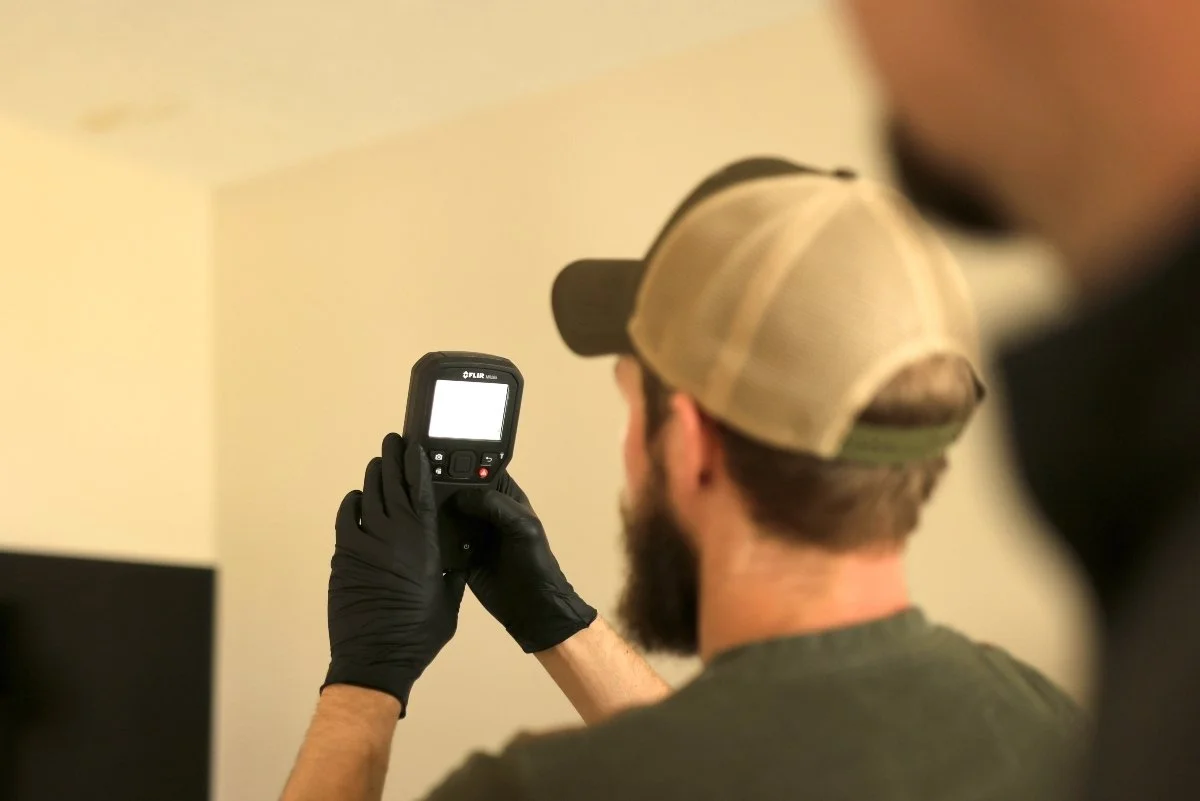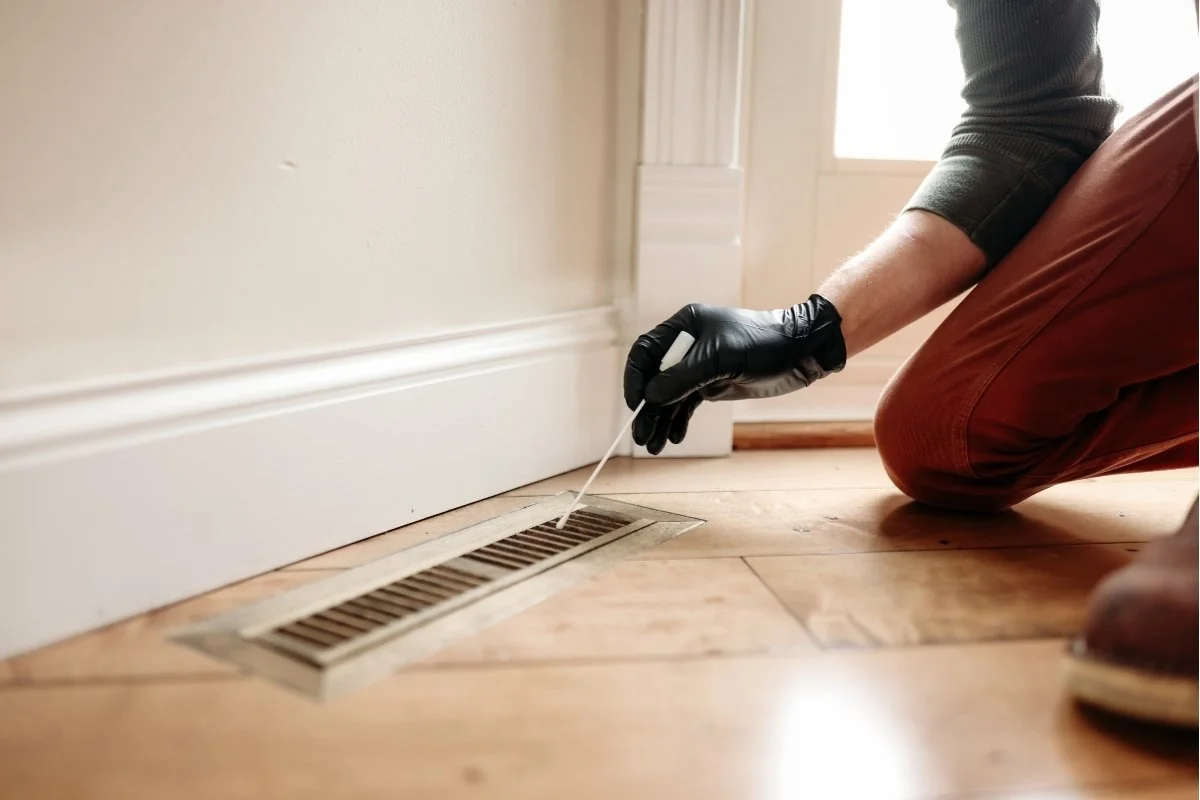Tools Of Our Trade: How We Find Hidden Mold
When it comes to mold, what you can’t see can hurt you. Mold often hides behind walls, under floors, or inside HVAC systems—places you’d never think to look. That’s why professional mold inspectors rely on cutting-edge tools to uncover hidden moisture and mold growth with pinpoint accuracy.
We combine expert methods with advanced technology to deliver a truly comprehensive assessment. This approach doesn’t just improve accuracy—it sets our services apart. While some mold inspections may seem more affordable upfront—often involving minimal testing like a single air sample in one room—they can overlook critical issues such as visible mold, hidden moisture or contamination. These shortcuts can lead to ongoing exposure, costly remediation, and the need for repeat inspections.
Let’s take a look at the gear that makes it all possible.
Moisture Meter
Moisture is mold’s best friend. A moisture meter spots elevated levels in drywall, wood, and flooring—often before any visible signs. It’s the first step in finding at-risk areas.
Infrared Camera
Thermal imaging cameras are game-changers. They reveal hidden moisture behind walls or floors by detecting temperature differences—helping inspectors spot mold risks without any demolition.
Endoscope Camera
When we need to see inside walls, ducts, or crawlspaces without damage, an endoscope camera is essential. This flexible tool lets inspectors view hidden mold or water damage in real time.
Air & Swab Sampling
Once a problem area is found, we use air and swab tests to confirm mold. Air samples show what’s circulating while swabs show what’s growing. Labs then identify the mold types and concentrations, providing a clear picture of contamination.
Why It Matters
Our inspections are different. With a blend of visual inspection and advanced diagnostics, we find mold at its source. No guesswork, just clear results that help you protect your health and make informed decisions about your home.




